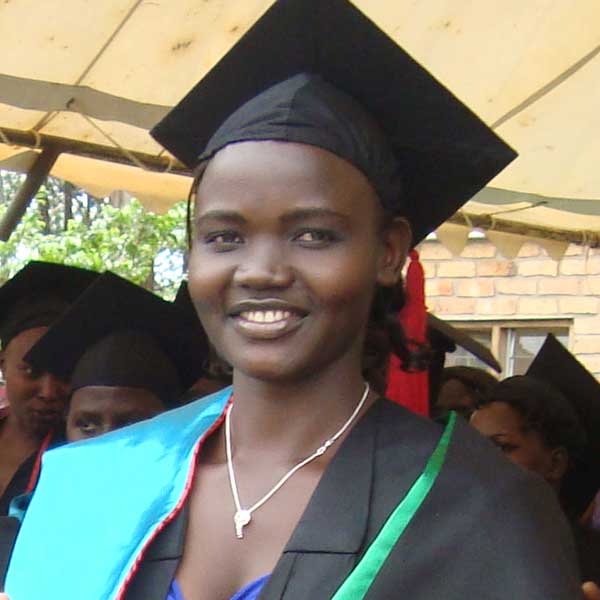
Honorary degrees are usually awarded for three reasons: to acknowledge a great discovery, to bring a celebrity to campus, to thank a donor. In the spring of 2009, Unity College found a fourth reason. That is the year Unity awarded 21 honorary bachelor of arts degrees to a group of extremely committed women from rural Africa who might never in their lives have the opportunity to visit Unity but who will always hold the College in their hearts.
Back story: Imagine Uganda, a country of great natural beauty, lush forests, good soil and extreme poverty. It is still recovering, many years later, from the terrible reign of despot Idi Amin. Plus, the continuing large-scale civil unrest and conflict with neighboring countries has taken its toll.
What little wealth there is can be found concentrated in its limited urban areas. This does not help the 80 percent of the population living in the country’s rural areas, many of whom are engaged in subsistence farming.
In 2006, African Rural University was founded to serve women in rural Uganda. According to the University’s web site, “ARU is focused on providing women with the necessary knowledge, skills and experience to be effective rural development specialists and change agents … ARU graduates will be able to help people improve their lives and transform their communities.”
Key was the rural focus of the University. In a case study of the University, Patricia Seybold writes, “Many universities in third-world countries are located in urban areas and prepare their students for jobs in urban areas. ARU’s founders wanted to create an institution of higher learning that would educate people who want to devote their careers to ‘bottom up,’ integrated rural development. ARU graduates would work — not in the cities, but in remote villages — to promote sustainable development in rural areas of Uganda and the rest of Africa. ARU education is contextualized in rural communities. One of its goals is to enable national and international experts to listen to, and learn from, rural people in their own communities.”
The 2006 entering class was a group of engaged, dedicated and brave women. Of the 29 who started, 21 completed their studies three years later. Unfortunately for them, African Rural University, still in its start-up phase, did not have the authority to grant degrees. These women had no credentials to show for their years of hard work.
That’s where Unity College stepped it. Unity College Trustee Martha Dolben, who is involved in African Rural University, approached the College to see if it would award honorary degrees to these women.



